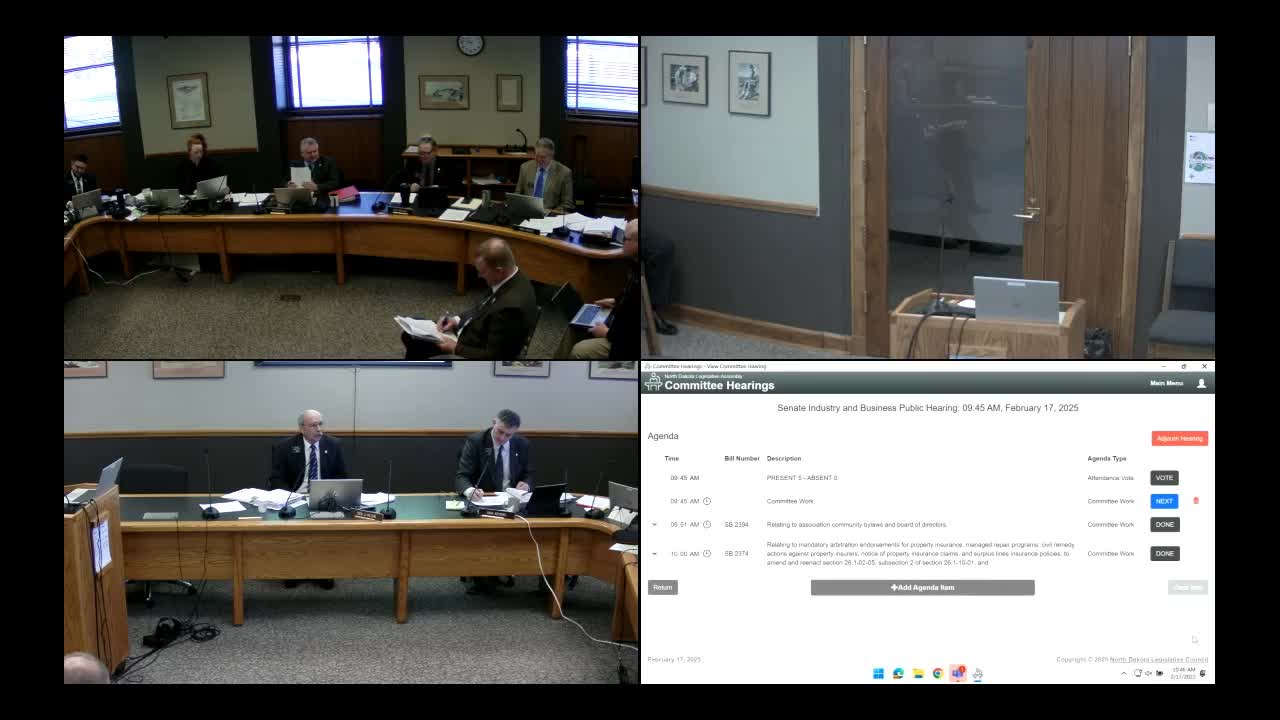Committee backs moving securities duties into insurance department, 4‑1
Get AI-powered insights, summaries, and transcripts
Subscribe
Summary
The committee voted 4‑1 to recommend moving the securities commissioner’s duties under the elected insurance commissioner. Supporters cited administrative efficiencies and access to enforcement resources; one senator opposed citing concerns about independence and appointment versus election.
The Senate Industry and Business Committee voted 4‑1 to recommend that the insurance commissioner assume the duties of the securities commissioner, a change supporters said would provide enforcement capacity and administrative efficiency.
John Godfrey, North Dakota Insurance Commissioner, told the committee the merger is ‘‘cut and dry’’ from the department’s perspective and stressed the potential for added resources and redundancies the insurance department can provide to securities enforcement. Godfrey said securities currently operates without an attorney and without a fraud division; folding securities into the insurance department would give securities immediate access to a legal team and a fraud unit the insurance department already maintains.
Several senators asked about preserving the securities division’s identity and ensuring independence. Godfrey said the proposal envisions securities remaining a distinct division under the insurance department, led by a deputy commissioner for securities with the division’s 10 FTEs intact and reporting to the elected insurance commissioner. He cited examples of other offices (including the state fire marshal) that retained operational identity after moving under the insurance commissioner.
Senators also asked about potential financial synergies. Godfrey said administrative efficiencies and access to existing enforcement staff would reduce the need for separate future staffing increases in securities, though he did not provide a precise dollar estimate.
Senator Klein said he was not prepared to support the change at this session and expressed a preference for the securities commissioner to be appointed by an elected official separate from the insurance commissioner; he cited recent staffing turnover and complex enforcement matters handled by the securities office. Other senators, including Senator Engott and Senator Angus, supported the merger, citing stronger leadership and potential long‑term efficiencies. The committee voted 4‑1 in favor of a do‑pass recommendation; Chairman Barta agreed to carry the bill.
The committee discussion references similar consolidations in other states (South Dakota and 16 other states noted by Godfrey) and highlights the principal tradeoffs: added enforcement capacity and administrative support versus concerns about independence and the optics of consolidating regulatory authority under a single elected official.
